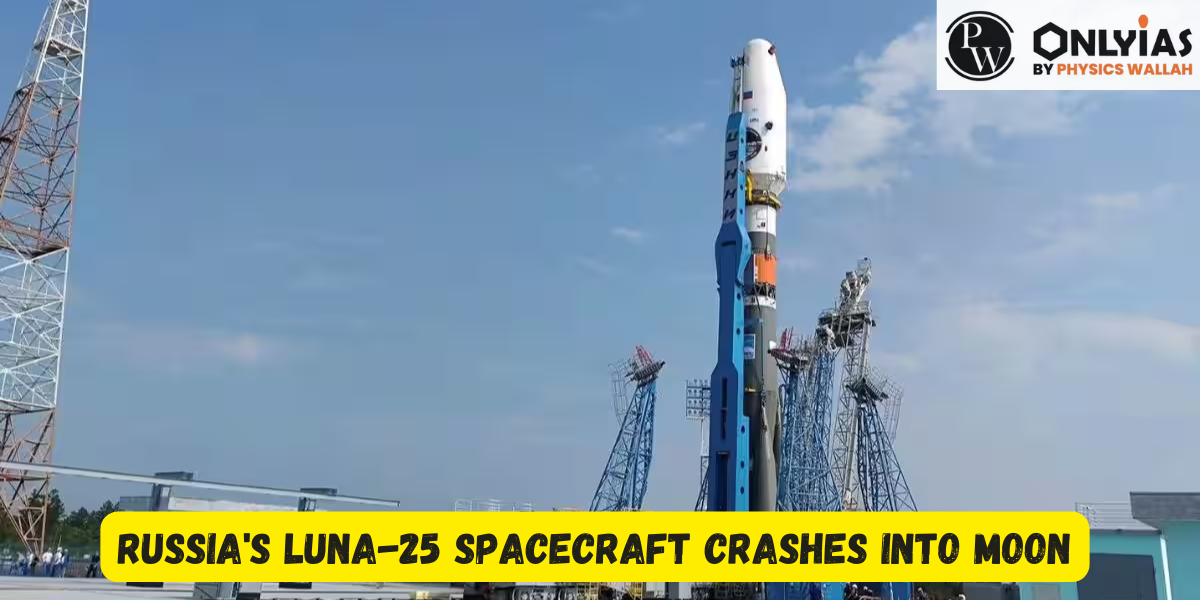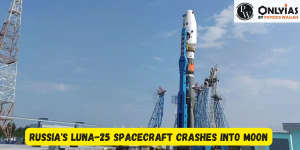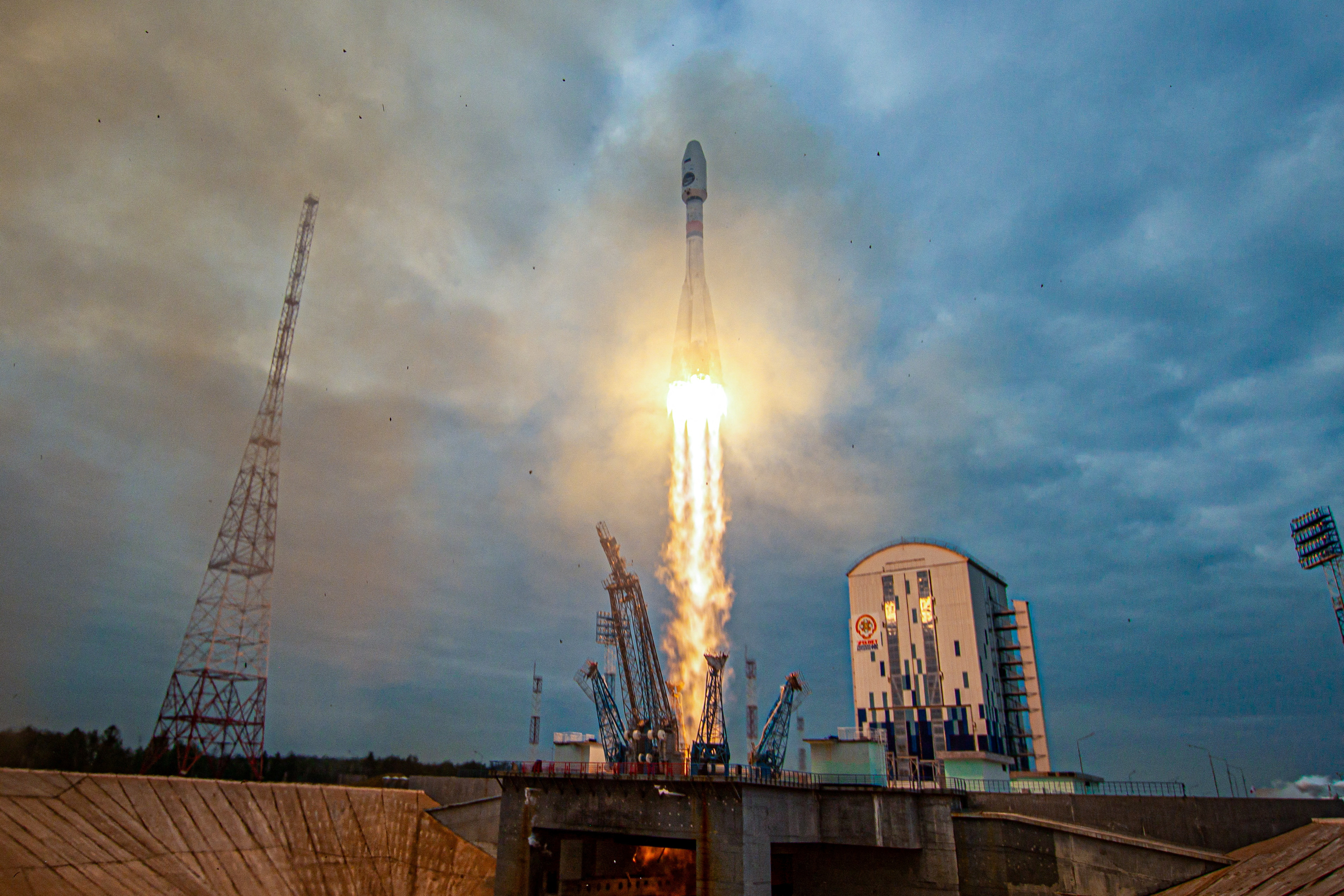
Russia’s Luna-25 Spacecraft: Russia’s lunar exploration faced a setback as the Luna-25 spacecraft crashed onto the Moon’s surface, marking a disappointing conclusion to the nation’s inaugural mission to the lunar terrain. The announcement came from the country’s space agency, bringing a somber end to their lunar endeavor, nearly five decades following the last landing by the former Soviet Union.
In a separate development, India’s Chandrayaan-3 Lander Module reached a significant phase on Sunday morning, entering its pre-landing orbit at a distance of 25 km x 134 km from the lunar surface. This maneuver served as preparation for the scheduled landing set for Wednesday. With its descent slated to commence around 1745 IST on Wednesday, the anticipated touchdown is expected within 15 minutes of the descent initiation.
The Indian Space Research Organisation (ISRO) affirmed that Chandrayaan-3 is operating as anticipated, demonstrating normal functionality as it readies itself for the upcoming descent. Scheduled to align with the lunar day-time, which spans approximately 14 days on Earth, this scheduled descent on Wednesday marks a significant stride in India’s lunar exploration efforts.

Luna-25 stands as a pivotal milestone in contemporary Russian space exploration, marking the nation’s maiden lunar mission. The previous instance of lunar exploration by the Soviet Union took place in 1976, culminating in the successful landing of Luna-24. Surprisingly, Luna-24 remained the last spacecraft to touch down on the lunar surface until 2013, when China’s Chang’e-3 made its historic arrival, marking a gap of 37 years.
Subsequently, the exclusive list of lunar visitors grew, with Chang’e-4 becoming the next in line, accomplishing a lunar landing in January 2019. Shortly thereafter, Chang’e-5, designed as a sample return mission, joined the lunar landscape, completing its landing operation in December 2020. Amidst these developments, Luna-25 etches its place as Russia’s contemporary lunar endeavor, breaking the long hiatus in lunar exploration initiated by the former Soviet Union.
Russia’s Luna-25 spacecraft, designed to execute the first-ever landing on the Moon’s south pole, faced a setback as it crashed into the lunar surface due to spinning into an uncontrolled orbit, as reported by the Roscosmos space agency on August 20. The spacecraft had initially aimed to make its historic landing on August 21, targeting the Moon’s south pole, a region scientists believe may harbor significant reserves of frozen water and valuable elements.
Unfortunately, Roscosmos experienced a loss of communication with Luna-25 on August 19, following the spacecraft encountering difficulties and reporting an “abnormal situation.” The agency’s statement acknowledged that the spacecraft entered an unpredictable orbit, leading to its ultimate collision with the Moon’s surface.
The Moon’s south pole holds immense scientific interest due to its potentially shadowed polar craters that might contain frozen water within rocks—a valuable resource for future space exploration. Notably, India’s Chandrayaan-3, launched on July 14, is also aiming for a landing in the same southern polar region. This mission represents Russia’s first lunar attempt since 1976, when it was under the Soviet Union. Only the Soviet Union, the United States, and China have successfully achieved moon landings to date.

Roscosmos’ mission aimed to demonstrate Russia’s capability to deliver payloads to the lunar surface, ensuring the country’s access to this celestial body. The space program faced challenges due to sanctions imposed on Russia following its actions in Ukraine, impacting access to Western technology. The Luna-25 was initially planned to include a moon rover but the idea was scrapped to enhance the craft’s reliability by reducing its weight.
The spacecraft was launched from Russia’s Vostochny Cosmodrome on August 10. The Vostochny Cosmodrome holds significance as a pet project of Russian President Vladimir Putin, reflecting his aspirations to elevate Russia’s status as a space superpower.

<div class="new-fform">
</div>